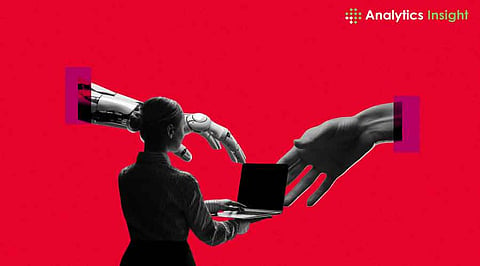

AI's development has taken over every sector, from chatbots answering questions to algorithms making decisions. But are people relying on AI too much? This article explores the growing dependence on AI and its potential consequences.
AI is no longer just a story; it is part of everyday life, from phones to cars to homes. Moreover, a study by PWC suggested that AI could contribute up to $15.7 trillion to the global economy by 2030. Based on this study, it is safe to say that AI is massively integrated into various industries, be it healthcare or manufacturing.
AI-powered assistants such as Siri and Alexa can schedule appointments, turn off lights, order groceries, or use algorithms to suggest songs on Spotify or shows on Netflix. Today, it is hard to imagine life without AI. Does this indicate an overuse of artificial intelligence and growing dependence?
Beyond AI dependency, technology reliance is celebrated for improving efficiency. Today, businesses use AI to streamline operations, reduce costs, and even make data-driven decisions.
According to a Gartner report, about 77% of companies worldwide use AI in some form. But what should be remembered is that AI dependency can backfire, from navigating through Google Maps to using spell-checkers, making individuals unable to learn proper grammar and spelling.
Moreover, AI has heavily impacted the job market. While AI does create opportunities, it also automates various roles. A report by McKinsey estimated that about 375 million workers may need to switch jobs by 2030 due to automation.
Such a shift raises concerns about excessive technology reliance and the implications of machines taking on tasks requiring human judgment or creativity.
The line between human and machine interaction blurs with AI integrated into daily life. One prominent example is customer service chatbots. While they are convenient, their lack of empathy leaves users frustrated.
While this approach is functional in customer service, it concerns areas requiring emotional intelligence, such as teaching or counseling. Technology's reliance on AI can erode the human connection in these areas.
It should be remembered that AI is a tool and not a replacement for human intelligence. A balance is needed to prevent the overuse of artificial intelligence. Hence, problem-solving skills, creativity, and emotional intelligence should be nurtured alongside technological advancements. Moreover, governments and businesses must regulate AI’s integration with ethical guidelines to avoid any consequences.
In conclusion, artificial intelligence is undoubtedly a game changer, making life easier, boosting productivity, and solving problems. However, these advancements should be interpreted as something other than an overuse of artificial intelligence and too much AI dependency. Therefore, AI should be used responsibly while preserving human values.
